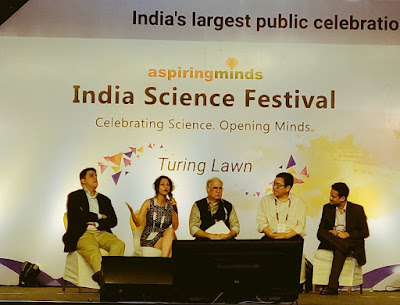New Release: My UN Commissioned Report on Innovation in the ICT's in Education sector
In February of 2016, I was approached by UNESCO to come up with a report to advise the UN Education Commission on the role of prizes in shaping innovation in the education sector. After months of research, and evaluation, I was thrilled to learn that the report made its way into the policy pathway. This paper was prepared for the International Commission on Financing Global Education.
Basically, here is the executive summary for the report. If interested, click here to get access to the final report.
Basically, here is the executive summary for the report. If interested, click here to get access to the final report.
The use of prizes to stimulate innovation in education has dramatically increased in recent
years, but, to date, no organization has attempted to critically examine the impact these
prizes have had on education. This report attempts to fill this gap by conducting a landscape
review of education prizes with a focus on technology innovation in developing countries.
This report critically analyses the diversity of education prizes to gauge the extent to which
these new funding mechanisms lead to innovative solutions in this sector. This is
supplemented with interviews with sponsors and prize participants to gain the muchneeded
practitioner’s perspective. We address important questions that pervade as prizes
are being implemented in this sector: What seems to be working and why? How do prizes
compare to other funding mechanisms to stimulate technology innovations? How is
sustainability achieved? What can be learned that can inform the design of future prizes?
We structure our recommendations along the Doblin framework, which entails analyzing
the design of prizes along the criteria of Resources (sponsorships & partnerships), Structure (types of prizes, eligibility criteria, scope, types of ICT projects, phases, & intellectual property rights), Motivators (monetary & non-monetary Incentives, Communications (marketing), and, Evaluation (measuring impact and long-term sustainability).
Through this process, a number of important assumptions are re-examined, namely, that technology innovation is central to educational reform, prizes stimulate innovation, scalability is a proxy for sustainability, and prizes are the most efficient funding mechanism to stimulate innovation. We re-calibrate expectations of technology innovation prizes in the educational field against empirical evidence. We reveal key trends through the deploying of prizes in this field and offer case studies as good practices for sponsors to consider when designing future prizes. The report makes recommendations along each of the given criteria to enhance the impact of prizes, drawing from interdisciplinary sources. The intent of this report is to enable sponsors to distinguish the hype surrounding these prizes and proceed to design prizes that can best serve the education sector.




Comments
Post a Comment